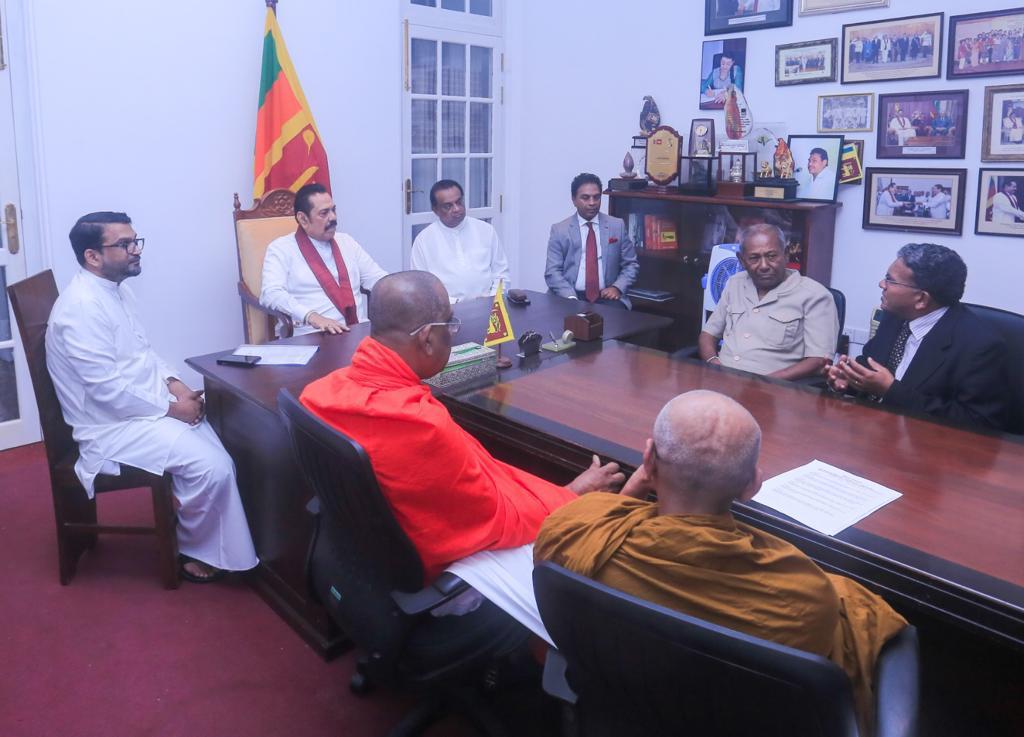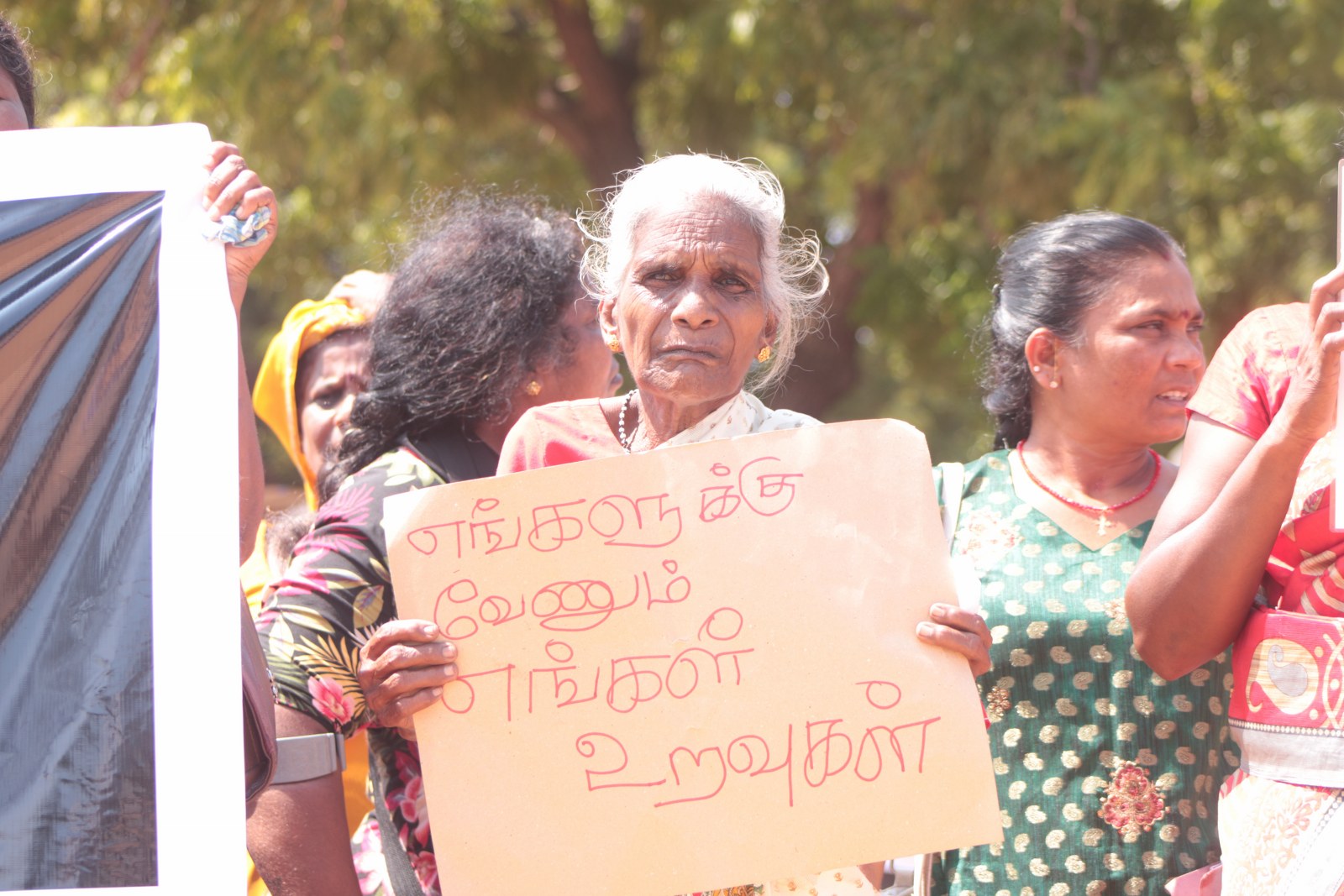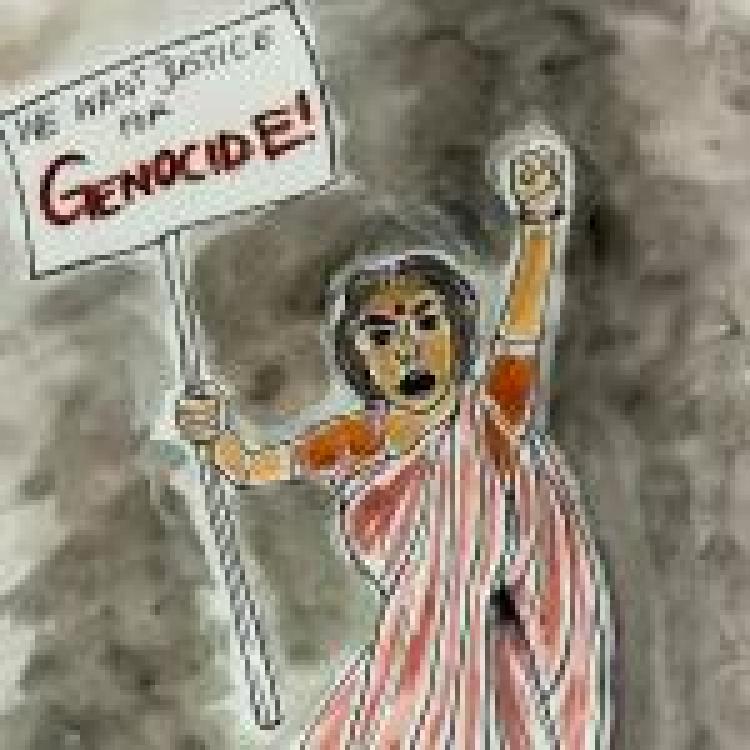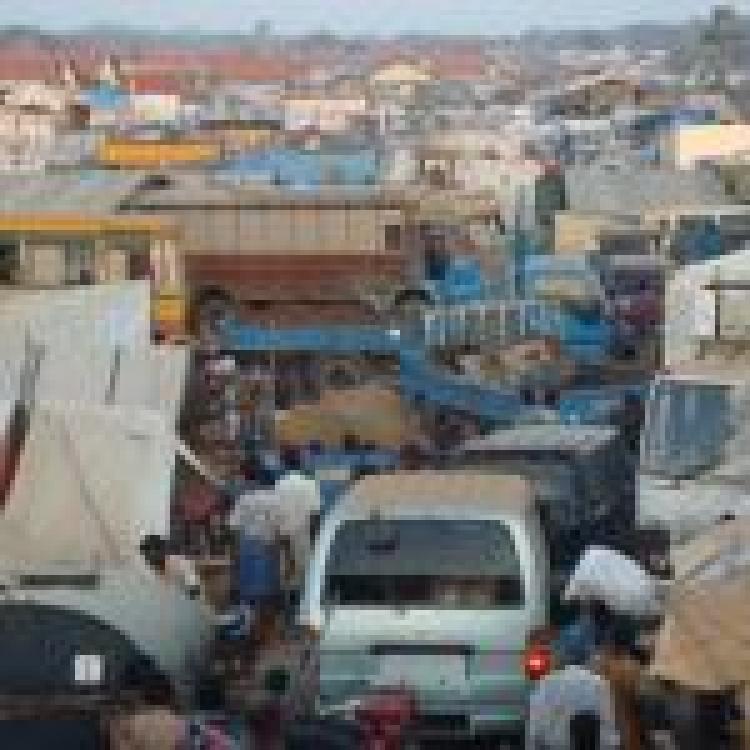For years the Canadian Tamil Congress (CTC) called for an international accountability mechanism for mass atrocities and for sanctions to be placed on Sri Lanka. Yet, last week, they met and posed for photographs with the man who bears chief responsibility for those very massacres. Tamil Canadians across the political spectrum, and the country, are furious.
“The events of the past few days have angered and disappointed many,” said Abimanyu Singam.
He is one of the founders and former National Director of the Canadian Tamil Congress (CTC), a Toronto-based Tamil community organisation that has been functioning for over 20 years. In the past, the CTC, like many other Tamil diaspora groups, demanded justice and accountability for the massacre of tens of thousands of Tamils by the Sri Lankan state in 2009. They lobbied politicians in Ottawa, Toronto, Washington DC, and at the United Nations Human Rights Council in Geneva.
But it was a CTC meeting in Sri Lanka last week that took Tamil Canadians, and even its founder Singam, by surprise.
In Colombo, senior CTC members met with Sri Lanka’s former president Mahinda Rajapaksa – a man who bears the highest level of responsibility for the atrocities that CTC once sought justice for. It was under his command that troops shelled hospitals at Mullivaikkal and executed Tamils who waved white flags. At his office last week, Rajapaksa sat at the head of a long table, flanked by his staff and under a large Sri Lankan flag. The walls were adorned plaques and portraits of the former president. CTC members engaged in a cordial discussion, shook hands, and then posed for photographs.
Rajapaksa with CTC and GTF members last week.
The images were striking. Within hours they were being shared and condemned by Tamils around the world.
“The recent engagement by the Global Tamil Forum and the Canadian Tamil Congress with former President Mahinda Rajapaksa is deplorable,” said Gary Anandasanagree, a Member of Parliament for Scarborough Rouge Park.
Rajapaksa’s crimes are well documented. “On January 10, 2023, Mahinda Rajapaksa and Gotabaya Rajapaksa were sanctioned by the Government of Canada for gross and systematic violations of human rights,” said Anandasanagree. “This follows years of advocacy at the United Nations Human Rights Council and other international fora seeking accountability for war crimes, crimes against humanity and genocide committed against the Tamil people.”
Despite the sanctions, CTC members, which includes Canadian citizens, met with the accused war criminal. Rajapaksa’s office confirmed to the Tamil Guardian that “this meeting was held upon a request made by the Global Tamil Forum”, an umbrella organisation that consists of just the CTC and the Norwegian Tamil Forum.
“This engagement, without consultation of survivors, civil society organizations, and the Tamil people on the island, is a serious failure in judgment,” added Anandasanagree. “These actions have undermined the confidence of these organizations and their claims to represent the Tamil Diaspora and more fundamentally to advocate on behalf of the interests of the Tamil people in the homeland.”
‘Deeply hurt, disappointed, and frustrated’
“I was deeply hurt, disappointed, and frustrated that an organization which was built by the sweat and tears of our community has now stabbed us in our back,” said Neethan Shan, a Toronto District School Board member and active member of the Tamil Canadian community. “We as a community need to come together to condemn these organizations for collaborating with war criminals and perpetrators of the Tamil genocide.”
Those feelings were echoed by many, according to Amarnath Amarasingam, a Tamil-Canadian professor at Queens University who has written on Sri Lanka and the Eelam Tamil diaspora. “Everyone I’ve spoken to is quite shocked actually,” said Amarasingam. “The fact that [CTC], after years of giving speeches about Mahinda’s war crimes at the UN would go stand there behind him requires some serious explanation. And fast.”
The meeting with Rajapaksa occurred as part of Sri Lankan government-approved initiative that has seen CTC and Global Tamil Forum (GTF) members tour the island, following the signing of an agreement with Sinhala Buddhist clergy. The so-called “Himalaya Declaration”, made up of six brief statements, has come under widespread criticism. In the North-East, Tamil families of the disappeared, women’s organisations, students and clergy rejected it, accusing it of “totally ignoring Tamil grievances and the pain and suffering Tamils have undergone since independence”. Elected Tamil parliamentarians refused to meet with them, whilst dozens of diaspora organisations denounced the initiative, accusing it of undermining calls for an international justice and accountability process.
“I think working with the government is sometimes inevitable when it comes to development initiatives in the North-East,” continued Amarasingam. “But working with regime figures who have shown zero remorse, zero accountability, and continue to demonize diaspora activism is profoundly harmful.”
Harini Sivalingam, a lawyer and community activist, shared those concerns. “As someone who played a role in forming the Canadian Tamil Congress, it is disheartening to see how far from its mandate and vision the organization has strayed,” she said. “It is unfathomable that organizations who purport to be the voices of the Tamil community would sit at the same table with Sri Lankan war criminals responsible for grave atrocities.”
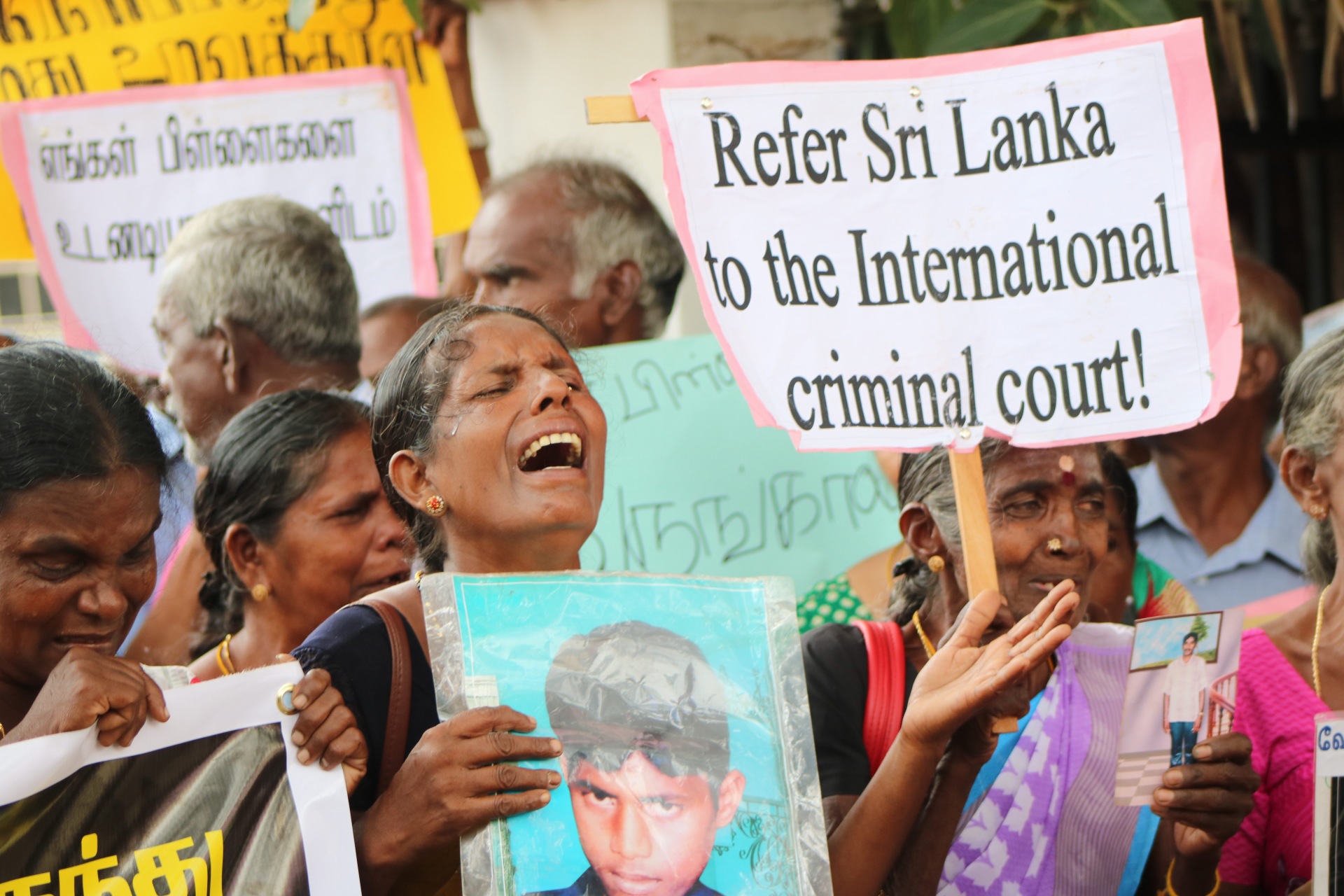
Tamil families of the disappeared in 2019, demanding Sri Lanka be referred to the ICC.
Many in the Tamil Canadian community questioned the legitimacy of this project and the authority of CTC, an unelected body, to speak for the Tamil people on the island or in the diaspora.
“Without consultation and transparency, the GTF and CTC organized and participated in meetings with the perpetrators of war crimes, crimes against humanity and genocide against the Tamil people,” added Sivalingam. “In doing so, the GTF and the CTC have lost their legitimacy and can no longer claim to represent the interests of the Tamil people in the Diaspora and the Tamil homeland.”
“I am concerned with respect to the lack of accountability of unelected people purportedly speaking on behalf of the Tamil people with respect to a political solution in Sri Lanka,” said Malliha Wilson, Senior Counsel and a human rights lawyer at Nava Wilson LLP. “It is imperative that engagement and consultation with the Tamil community and victims be undertaken before any such initiative.”
“No one organization holds the authority to decide for the entirety of our population,” added Nimal Vinayagamoorthy, a member of the Transnational Government of Tamil Eelam (TGTE) in Canada. “Taking a major step of signing a declaration must involve the consultation of functioning Eelam Tamil organizations and political parties to make sure there is consensus and that there is an impactful decision taken to support the struggle of Eelam Tamils.”
Echoing these sentiments, Singham asked, “How does a so-called umbrella organization consisting of only two member organizations from the diaspora go on a path of unwinding all the work done by the diaspora?”
“How can they legitimately initiate a process that does not involve any of the major parties representing the Tamils of the Island of Sri Lanka? Why is it that such a pervasively non-inclusive and upper-handed approach is lauded by some countries in the West?"
Clear and consistent Tamil demands
"We want our loved ones." A Tamil mother of the disappeared protests in Mullaitivu, 2019.
There is a real sense that the actions of CTC have served a major setback to the decades-long struggle by Tamils for justice.
“The Tamil people’s demands are clear and consistent,” said Archana Ravichandradeva, Executive Director of People for Equality and Relief in Lanka (PEARL). “True reconciliation will require a political solution acceptable to the Tamil people in line with their right to self-determination, and accountability and justice for the mass atrocities committed by the Sri Lankan state against Tamil people.”
But the meeting with Rajapaksa and apparent acceptance of the declaration by Western missions in Sri Lanka, including the Canadian High Commissioner, has led Tamil Canadians to fear that this may obfuscate those demands.
“Any initiative that denies the overwhelming Tamil support for these demands only aids the Sri Lankan government in avoiding international scrutiny, especially in the run up to the UN Human Rights Council,” Ravichandradeva added. “These initiatives also undermine the decades-long work of Tamils, including victim-survivors, who lead the work on accountability in the international arena. Diplomatic missions should stop supporting self-promoting and visionless initiatives, and should instead listen to the experiences and demands of the overwhelming majority of the Tamil people, who tirelessly work every day for a bright future for the Tamil nation.”
“The so-called ‘Himalaya Declaration’ and initiative is nothing but a deceptive attempt to protect the Sri Lankan government from international scrutiny,” said Professor Sri Ranjan, Chair of National Council of Canadian Tamils. “It is a smokescreen intended to provide cover for Sri Lanka, whilst Tamils around the world and in our homeland are demanding justice for the genocide.”
“The Eelam Tamil community has worked too hard to now settle for vague declarations that threaten to set back nearly two decades of human rights advocacy,” added Katpana Nagendra, General Secretary of the Tamil Rights Group, who reiterated their efforts for accountability at the International Criminal Court (ICC) and International Court of Justice (ICJ).
“It is not for the oppressor to tell us how or when we must reconcile,” said Toronto District School Board member Yalini Rajakulasingam. “Justice for genocide must be centred around Tamil victims and their demands.”
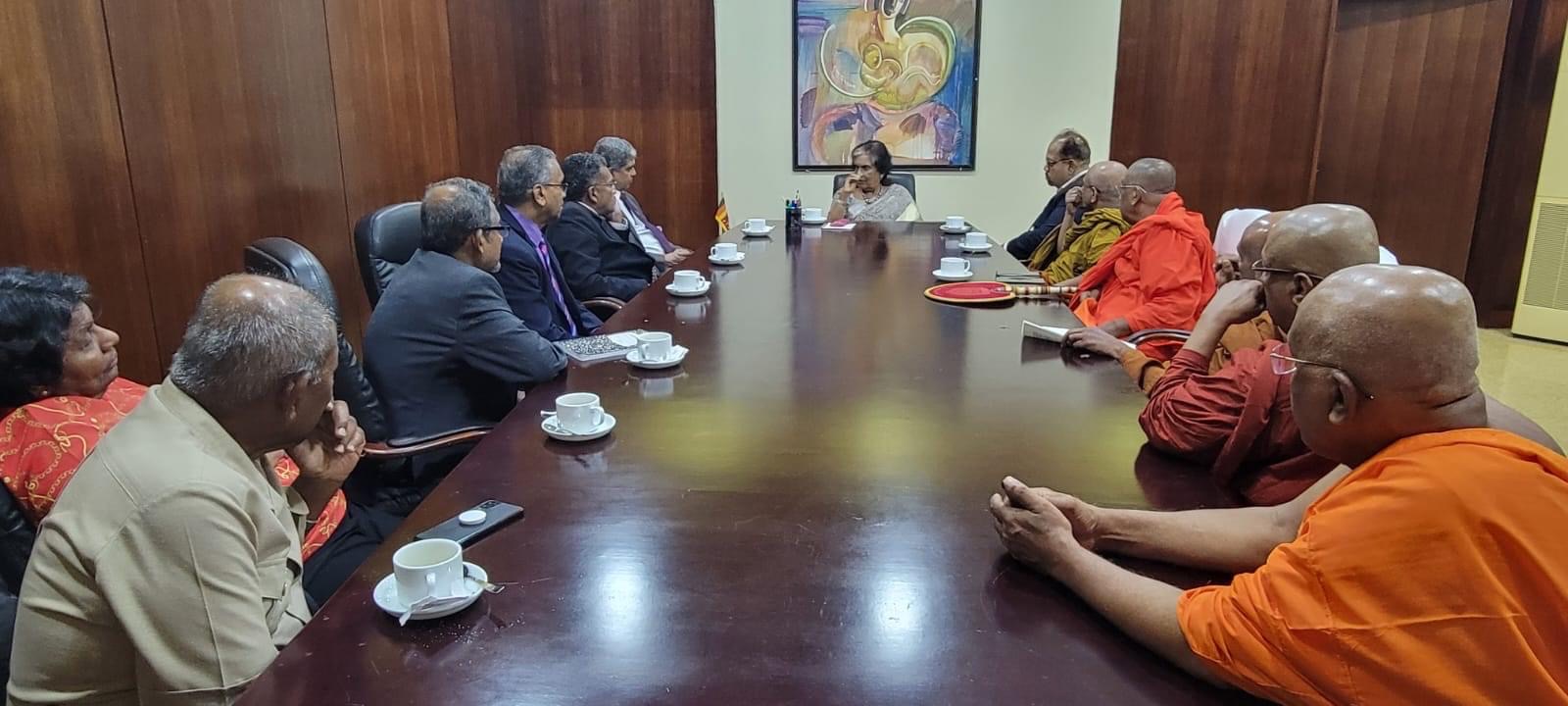
Though the CTC delegation also met with other accused Sri Lankan war criminals, including former president Chandrika Kumaratunge who oversaw several mass atrocities, it was the meeting and photographs with Rajapaksa that fuelled the backlash.
“Rajapaksa also represents every oppressive Sri Lankan government since Independence that has perpetuated anti-Tamil campaigns,” added Rajakulasingam, stating he “is a murderer and has blood on his hands.”
“He shattered our population and committed a genocide,” said Vinayagamoorthy, labelling engagement with him “shameful”.
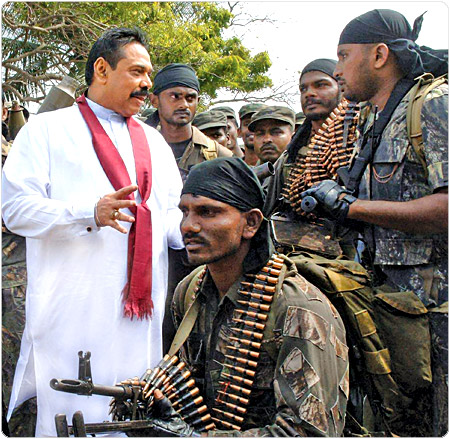
Mahinda Rajapaksa with Sri Lankan troops in 2009.
“Mahinda Rajapaksa oversaw the Tamil genocide of 2009, designed to crush the struggle for national liberation,” said Krisna Saravanamuttu, a writer, community organiser, and criminal defence lawyer in Toronto. “Under his watch, Sri Lanka slaughtered over 100,000 Tamil civilians from September 2008 to May 2009 alone.”
“We protested week after week in 2009 as the bombs dropped on Vanni,” he recalled, pointing to how hundreds of thousands of Tamil Canadians took to the streets as Rajapaksa’s military campaign was underway. “Nothing was spared, as hospitals, food distribution lines, and even safe zones declared by the government were repeatedly and indiscriminately bombed.”
“Today, Rajapaksa’s policies—alongside those of the UNP led by Ranil Wickremesinghe—have entrenched a total military occupation of the North-East, 15 years after the genocide.”
The crisis in CTC
Sivalingam called CTC’s decision “an insult to the victims, survivors and families who have lost loved ones during the armed conflict”. “These actions are a colossal failure in leadership,” she added. “It is not a surprise that so many members of the Tamil community around the world have expressed their outrage and have lost confidence in GTF and CTC. The leadership of the GTF and CTC must listen to the voices of the Tamil people, take responsibility and be held accountable for their actions.”
The future of the CTC now looks uncertain, with a campaign calling on members and sponsors to “boycott, disinvest and isolate” the organisation. “CTC is whitewashing the Eelam Tamil genocide,” read a flyer being widely shared on WhatsApp.
It is a “crisis caused by its own actions,” said Singam. “Their response will show us all if this organization can continue their claim to be the unified voice of Canadian Tamils.”
Despite the growing criticism from across Canada and around the world, from survivors of the genocide and from local community members, the CTC leadership is apparently doubling down – both in private and in public. “I’m proud to be a member and a supporter of CTC,” wrote one of the Board of Directors, in a still public social media post just yesterday - an apparent veiled response to the backash.
At the time of publishing, CTC had not responded to requests for comment from the Tamil Guardian but was still publishing updates from their Sri Lankan initiative on Facebook. One recent update saw their cover photo change to a banner with their motto - "Voice of Tamil Canadians".
“The leadership of these organizations needs to seriously reflect and be accountable for their actions,” said Anandasangaree, as he expressed his disappointment. Other commentators have been more stinging in their criticism. Prof. Sri Ranjan called them “impostors”, whilst Shan said he was “shocked and disgusted”.
“We want accountability for international human rights and international humanitarian law violations,” concluded Saravanamuttu.
“We do not want photo ops that exonerate war criminals.”

